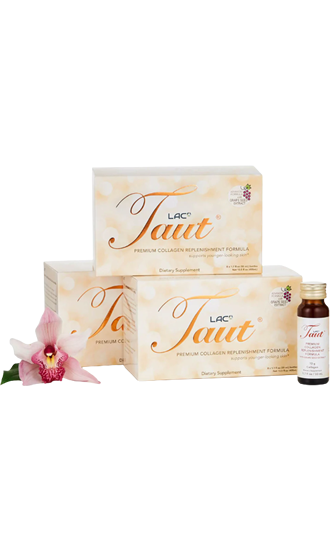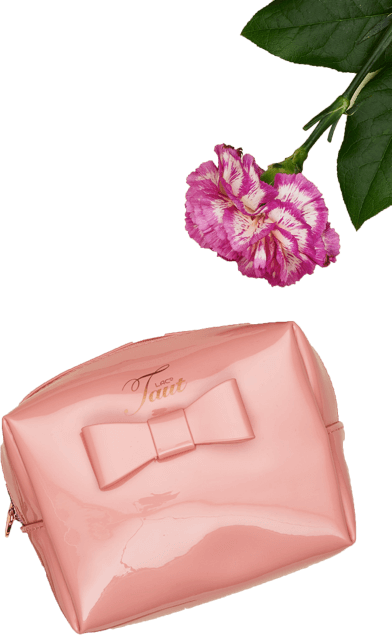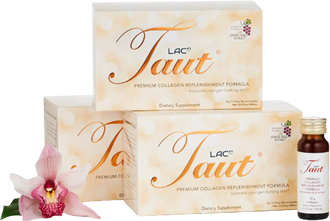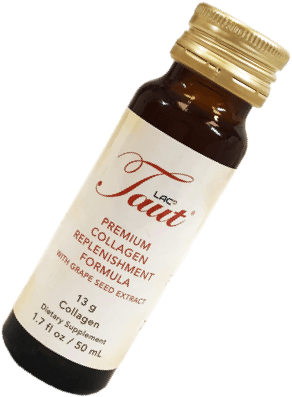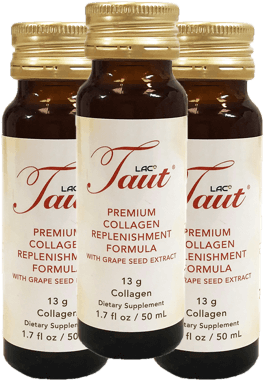Gelatin: What Is It Made Out Of & Where Does It Come From?

Ever wondered what's really in your bowl of Jell-O?
The strange colorful wobbly substance has been a staple of American households since the 1890s, a low-calorie, low-sugar dessert that even hospitals seem to serve up every day. But what makes that signature wobbly texture?
The secret is gelatin, a versatile ingredient that crops up in a surprising number of products. Gelatin features in the ingredient lists of food products, cosmetics, medications, art supplies, and more!
The origin of this ingredient is a little unusual, and you might be put off by the fact gelatin comes from animal bones. Yes, that much-loved dessert really does come from cows, pigs, and chickens. The same goes for a lot of the favorite gummy candies from our youth, which often contain gelatin to get their signature texture. Nowadays, however, there are more and more plant-based and marine gelatin alternatives on the market for those who want to avoid meat.
Want to know more? Here's our guide to how gelatin is made, where you find it, and what it is used for. We've also got the dirt on why gelatin works not just for food, but for beauty products and supplements too!
Browse our best skin care products and supplements
What Is Gelatin?
Gelatin is a protein that is translucent and flavorless. On its own, gelatin is dry and brittle, but when mixed with warm water, it dissolves to create a gummy, jelly-like texture in just a few minutes. Unflavored gelatin is used as a gelling agent or thickener in a variety of products.
The first thing that comes to mind when you hear the word “gelatin” is probably Jell-O, the sticky sweet jelly dessert. But you'll actually be surprised when you hear just how many things this gooey ingredient shows up in – and it's not just in food. In fact, gelatin is important in both the food and pharmaceutical industries. Gelatin is used in products like:
- Puddings, cakes, and ice creams
- Candy such as homemade marshmallows, gummy bears, chewing gum
- Some types of yogurt
- Powdered milk
- Apple juice, white wine, vinegar (unflavored gelatin can be used to clarify clear liquids)
- Fat-free and fat-reduced foods (unflavored gelatin can create volume in foods without adding calories)
- Cosmetic products such as shampoos, face masks, tanning gels
- Artistic papers, glossy printing papers
- Medications such as vitamin capsules and film-coated pills
You can also buy gelatin in the supermarket at a relatively low cost if you want to use it in food for home cooking. For food applications, unflavored gelatin is used in dried sheets or powdered form.
However, gelatin isn't just popular for home cooks and bakers, but it's also cropping up in supplements for skincare and fitness enthusiasts, as well as in supplements to help ease joint pain (more on these later). That's because gelatin is a protein. Gelatin is rich in amino acids, like glutamic acid, thanks to its parent collagen.

Learn more: Collagen definition
What Gelatin Is Made of - Gelatin Ingredients
So let's take a closer look at how gelatin is produced and where it comes from. Gelatin is a protein made from a combination of peptides and proteins derived from collagen, which is typically sourced from animals or fish.
Gelatin was popularized in the mid-nineteenth century when it started being used in a host of foods like aspic and jellies. Fun fact: It all began when Jell-O was invented by Kraft Foods in the 1890s!
The method of making gelatin started in home kitchens and, although now modernized and industrialized by gelatin processing plants, the steps of the process remain largely the same. Here's how the final gelatin product is made:
1. Treating Animal Bones & Connective Tissue (Animal Gelatin Source)
This bit sounds a little (or a lot) unpleasant, especially if meat and animal products aren't your thing. Because gelatin consists of collagen, and collagen comes from bones and connective tissues, this is how most gelatin is produced.
Gelatin production starts in a gelatin factory by using raw materials from animal parts and animal tissue from pigs, cows, and chickens from slaughterhouses nearby. These animal parts are typically the by-products discarded by a food processing plant, with common examples being split cattle hides, cattle bones, horns, pig skin, etc.
When the animal parts arrive in the gelatin factory, the first step of the gelatin-making process involves using chopping machines to break the materials down, before treating them with an acetic acid treatment or alkaline treatment to help disintegrate the fibers and reduce their fat content – such as caustic lime or sodium carbonate. The treatment that the gelatin goes through (which can take up to several weeks) will affect its physical properties and chemical composition. If strong acid is used, the end product is called type A gelatin. If alkali is used, the result is type B gelatin.
More helpful reading: What is bovine collagen?
2. Extracting Collagen Hydrolysate
Then, the animals' tissues are added to vats of boiling water. When the meat and tissues of animals are boiled, hydrogen bonds are broken and collagen is naturally extracted – an essential element to the gelatin-making process.
The process of boiling animal bones over very low heat is also used by people at home today, who make their own bone broth in order to boost their collagen intake and help improve their dermis, hair, and joints – although the jury is out on how effective this home-brew method is. 1
Since collagen hydrolysate is derived from animal parts, gelatin is definitely not a vegan ingredient. There are, however, alternative collagen and gelatin products that use marine (i.e. fish) sources, which are more friendly to pescatarian diets and the environment (more on this later).

What's the connection between bone broth and collagen? RenewSkin Inc. investigates.
3. Evaporating & Filtering the Gelatin Solution
Once the animal parts have been boiled and collagen has been extracted, the liquid mixture is strained, filtered, and the bones are discarded. The gelatin extracted is then passed through multiple filtration systems that extract the solid gelatin from the liquid.
More helpful reading:
https://www.renewskinco.com/blogs/i/collagen-foods
4. Grinding & Pressing (Creating Gelatin Powder)
After the filtration process, the gelatin is ready to be dried into a fine powder or pressed into sheets. At this stage, gelatin is done and ready to be used as an ingredient in baking and cooking (or for cosmetics, medications, etc.)
5. Additives & Packaging
Both the sheets and the powdered gelatin end products are odorless and flavorless, although, in the case of Jell-O and many other gelatin-derived food industry products, artificial sweeteners and artificial flavors will be added before they are packaged and sold.
This dried and ready-to-use form of gelatin is intended to be mixed with hot water. In this process, the gelatin sheet or powder will absorb the water and form a thick liquid. When cooled, this will form into a thick gel or Jell-O texture. Because these food companies have already added colors and sweeteners to their gelatin, the resulting product is ready to serve up as a dessert or pudding.
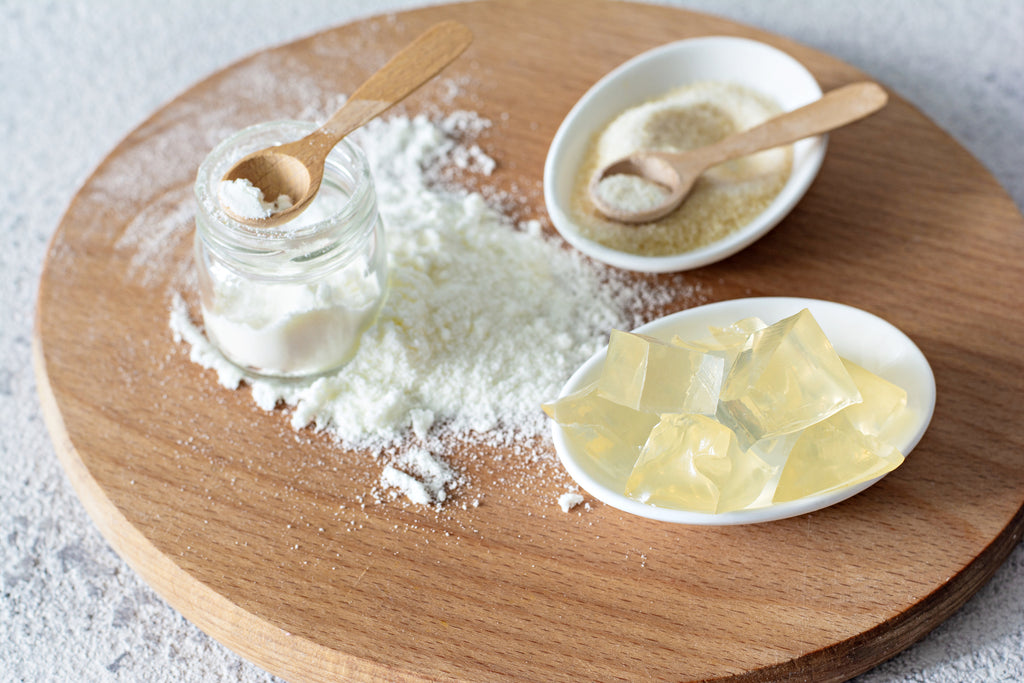
More helpful reading: Does collagen help hair
Non-Animal Alternatives
Although most gelatin is made from animals like cows, pork skins, and chickens, there are gelatin alternatives out there for anyone who wishes to avoid animal products – whether it's for environmental, religious, or personal reasons.
Agar-agar is a plant-based collagen product, which is derived from seaweed. This powder is not technically gelatin, but it looks and acts the same, and it can be used to bake and cook vegan food.
Fish collagen is an even better alternative to animal collagen, as it offers all of the same health and beauty benefits, without the use of animal products. Marine gelatin is made from the swim bladders of fish and is often used for clarifying wine, beer, fruit juice, and vinegar. You can find marine collagen and gelatin in a wide array of products and dietary supplements, and it can be used for cooking and baking too.
Check out our vegan skin care products today!
Is Gelatin Good for You?
Thanks to its rich amino acids profile, gelatin is a substance that may help contribute to skin, hair, muscle, and bone health.
However, gelatin in the form of desserts like Jell-O, gummy bears, puddings, or low-fat yogurts, for example, may not be so good. While these foods are often advertised as low-calorie, low-sugar options, they tend to be packed with artificial sweeteners, flavors, and colorings that can have negative effects on your health. 2
These flavored or unflavored gelatin rich foods also tend to be low on nutrients, meaning that they don't provide much in the way of vitamins or minerals. So if you're looking for a good source of collagen-derived protein, avoid gelatin in these sweetened forms and look for options that have demonstrably positive impacts, without added artificial sweeteners or colorings.
Most dietary supplements that harness the benefits of collagen for your health will contain hydrolyzed collagen peptides – a similar, but not identical, ingredient.
Overall, are generally no safety concerns when it comes to eating or taking gelatin. However, it can leave an unpleasant taste in your mouth and cause symptoms like bloating, heartburn, and excessive belching in some people.
More helpful reading:
https://www.renewskinco.com/blogs/i/dietitian-tips-for-healthy-skin
Gelatin vs. Hydrolyzed Collagen: What's the Difference?
So you might have heard of gelatin and hydrolyzed collagen in various contexts, but did you know that they are almost the same thing? There is, however, one important difference that separates luminous gelatin desserts from your health and beauty supplements!
In making gelatin, the collagen hydrolysate from animals or fish undergoes a partial hydrolysis process, which makes it easier to digest. The resulting product has a higher gel strength and it needs to be dissolved in hot water, creating that signature gelatin 'Jell-O' texture when cooled.
Hydrolyzed collagen, on the other hand, is the ingredient you are most likely to find in skincare and fitness supplements. This is collagen that has undergone a full hydrolysis process, resulting in ingredients known as collagen peptides. These are even easier and quicker to digest than gelatin, making them a more effective and efficient ingredient if you want to get the full health benefits of collagen.
Collagen peptides can be dissolved in both hot and cold water, so they are more useful as supplements and can be mixed into a variety of things including water, smoothies, soups, sauces, and coffees. They act differently to gelatin, and they have a lower gel strength that will not set to create a gel consistency – so you can forget trying to use your favorite collagen supplement to make any Jell-O!
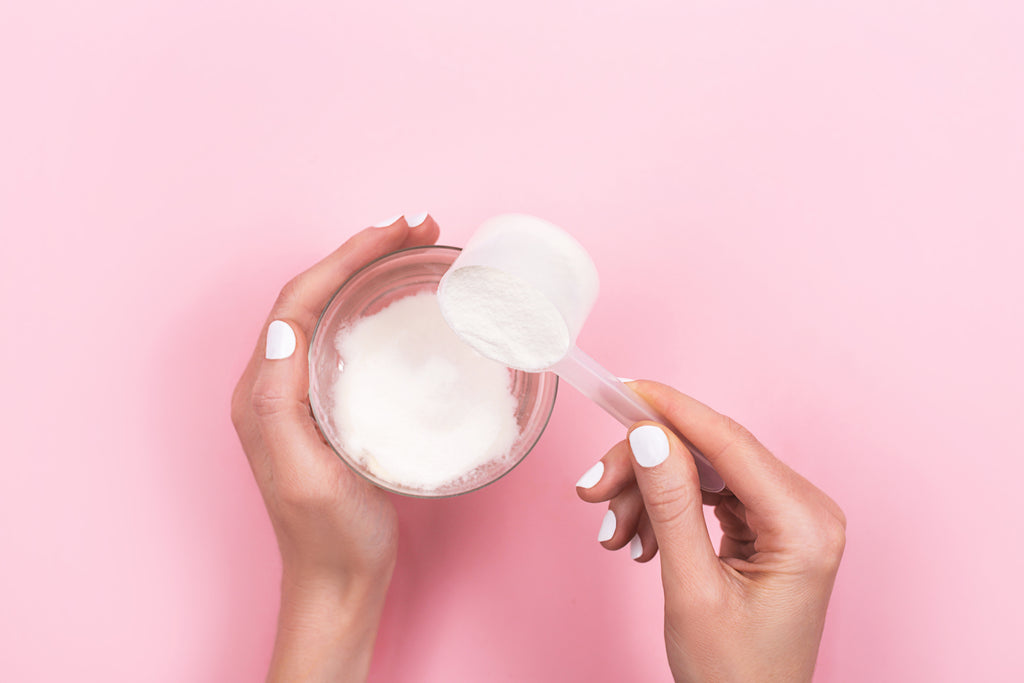
More helpful reading:
https://www.renewskinco.com/blogs/i/collagen-in-your-coffee
Collagen Peptides & Supplements Explained
If you're wondering why hydrolyzed collagen is the choice for supplements while gelatin isn't, the answer all comes down to something called bioavailability.
Bioavailability is the rate at which anything you eat or drink can be absorbed into your bloodstream. Collagen in its natural state is made up of molecules that are too large to be absorbed through the intestinal wall into the bloodstream, and certainly way too large to absorb through the dermis (skin barrier).
Hydrolysis is the crucial process that turns collagen from a large and essentially unusable molecule into something that is easily digested and absorbed into your system. The standard collagen molecule is approximately 300,000 Daltons in size. Gelatin (partially hydrolyzed) ranges from 220,000–20,000 Daltons. A fully hydrolyzed collagen molecule shrinks down to approximately 5,000 Daltons. The smaller the molecule, the quicker it can be absorbed and used. 3, 4
If you're wondering why this is important, you should know what happens when collagen peptides enter your bloodstream. When your body detects the peptides in your bloodstream, something kind of wonderful happens!
Specialized human cells called fibroblasts trigger what's known as a 'wound repair' process in the body. This triggers the production of more collagen, which in turn increases the density of collagen fibers throughout your body, which gives added strength and structure to your skin, hair, nails, bones, muscles, tendons, and joints.
More helpful reading: best collagen drink
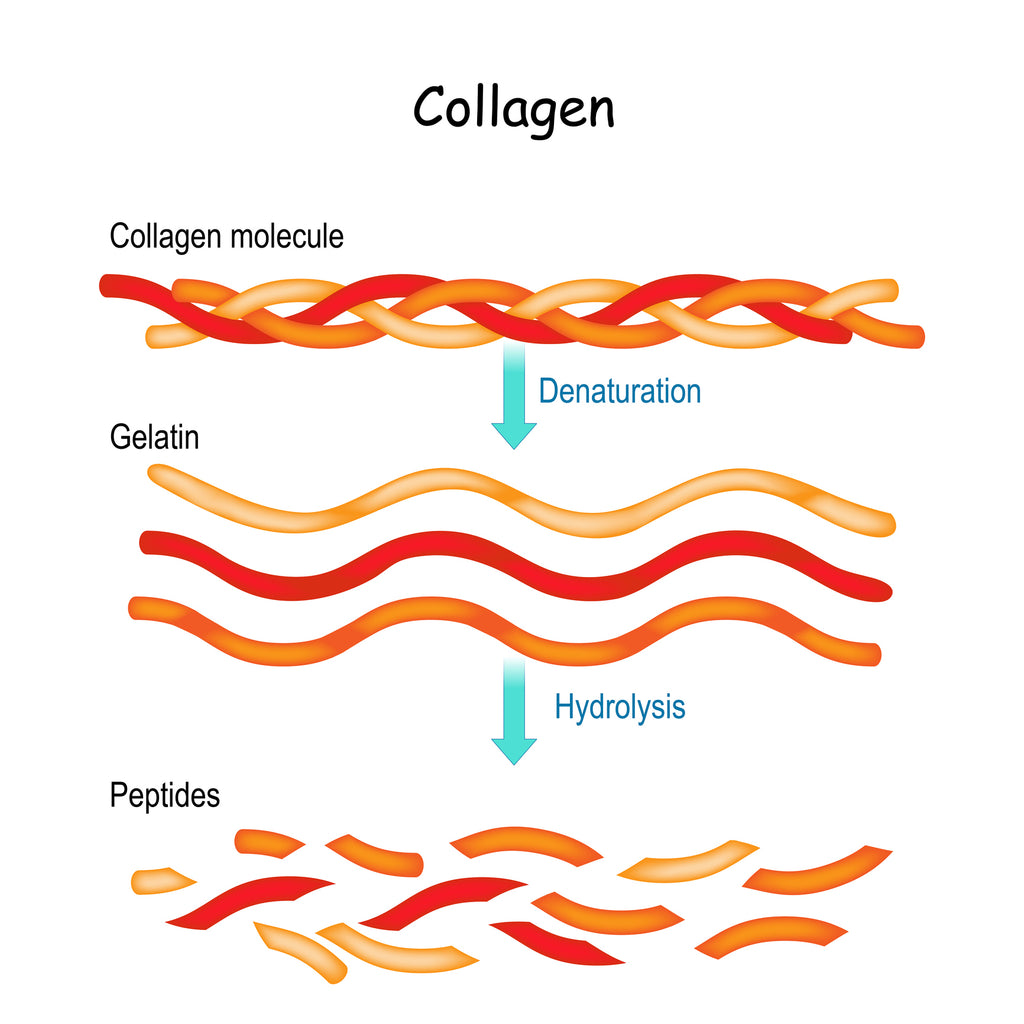
Want to know more about the benefits of collagen peptides? RenewSkin Inc. has the answers.
Why We Need More Collagen
Collagen is also the main and most abundant protein to be found in your body, with main four types prevailing:
- Type I – this main type makes up the structure of your dermis, bones, cartilage, tendons, hair, nails, and teeth
- Type II – this is the collagen that forms protective cushioning for your joints
- Type III - this type is found in your muscles and organs
- Type IV – this type creates barrier membranes and supports your dermis
As we age, our bodies begin to produce less and less collagen. On average, we produce 1-2% less collagen each year after the age of 20. This is the main reason that our skin begins to sag and dry out, and we start to see signs of age like wrinkles, jowls, and age spots. This also explains why the quality of our hair and nails deteriorates with age, and our joints and muscles become weaker. 5
When we give our natural collagen production processes a little boost, we can significantly impact the density of collagen throughout our bodies, resulting in stronger (read: younger-looking) skin. The impact on joints and bone health is another bonus – especially for people with arthritis! 6
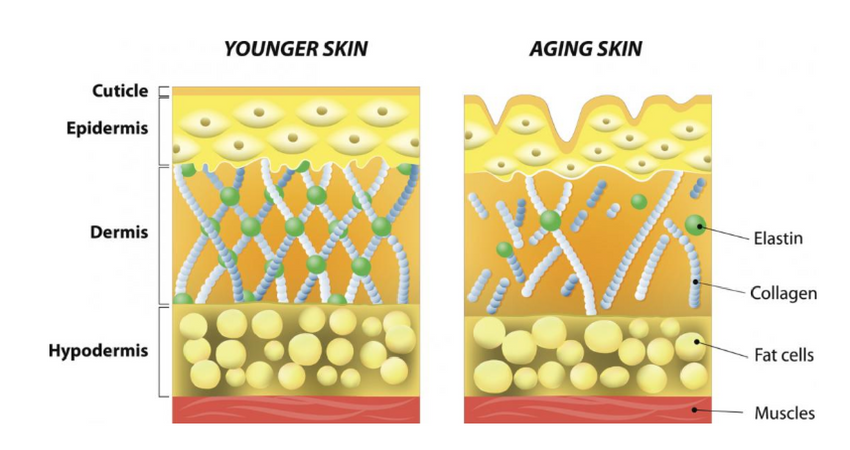
More helpful reading: How to get more collagen
Concerns with Taking Gelatin & Animal Collagen
If you're wondering if you should care about where your gelatin and collagen products come from – the answer is a resounding 'yes!'
As we have mentioned, a lot of gelatin and collagen products come from animals, which immediately rules out their usage for vegetarians and vegans, while also bringing up some sustainability, health questions, and safety concerns.
Since the outbreak of mad cow disease in 1986, there were concerns that collagen and gelatin products from animals (specifically bovine) carried a higher risk of spreading disease. There are also concerns regarding hoof-and-mouth disease and various bird viruses.
After one study done by the Food and Drug Administration showed that the various steps in the gelatin-making process limited the amount of contaminants in the final product, there was still insufficient evidence to prove that these steps would fully eliminate all contaminants. As a result, the U.S. Food and Drug Administration put more regulations and process restrictions into place in order to minimize this risk even further. 14
Cattle farming is also a huge contributor to greenhouse gas emissions worldwide, with methane outputs contributing significantly to global warming. When it comes to reducing our carbon footprints and minimizing our contribution to climate change, reducing the animal products we use and consume can have a big impact. 7
Finally, the peptides and gelatin obtained from animals like cows, pigs, and chickens also mostly contain a mix of type I and type III collagen. Marine collagen, on the other hand, contains a more concentrated amount of type I collagen. This is the one that has the most well-rounded benefits for your dermis, bones, cartilage, connective tissues, tendons, hair, nails, and teeth!
Why Choose Marine Collagen?
The benefits of marine collagen over animal collagen and gelatin are significant for health, beauty, and sustainability reasons.
Marine collagen really has an advantage when it comes to bioavailability, offering a much quicker and more effective absorption rate than that of animals. In fact, marine collagen is up to 1.5 times more absorbent than collagen and gelatin from animals (cows, pigs, and chickens), thanks to its low molecular weight. This means that, once ingested, it can get straight to work on triggering that all-important collagen production!
The type of collagen that marine sources give is usually superior to animal collagen too, because marine collagen peptides contain mostly type I collagen – the optimal type for improving the strength and elasticity of your dermis, hair, and nails.
In terms of diseases and health concerns, marine collagen and marine gelatin are very safe. Since it is a pure extraction from fish, it’s free from dangerous compounds and diseases that can cause unwanted side effects.
When it comes to sustainability, marine collagen is again a clear winner over animals – whether you typically eat meat or not. Of course, not all marine collagen is created equal, but as long as your collagen has been sourced from wild-caught fish such as red snapper or cod, it has a very low environmental impact.

More helpful reading: Are there any side effects of collagen?
Taut Ticks All of the Boxes
Taut Liquid Collagen Drink is a premium marine collagen supplement, sourced from wild-caught red snapper from the Indian Ocean. It has been specially formulated with 100% type I collagen to improve the health and strength of your skin, hair, and nails – with some serious anti-aging beauty benefits.
Our formula uses the revolutionary patented hydrolysis technology to break down very large collagen 'super molecules' into tiny nano-sized peptides, which can be readily absorbed into our bloodstream.
Hydrolyzed collagen is able to deliver small, usable chain peptides efficiently into the dermis and trigger collagen production. Because our formula contains a potent dose (13,000 mg, to be exact) of these nano-sized peptides, it can work in an instant to trigger your body's 'wound repair' response and activate fibroblasts to begin producing new collagen again.
Several factors contribute to how much collagen per day you should take, but clinical studies show that ingesting 10,000mg per day for a period of 8 weeks helps to increase collagen from within and reduce wrinkles, increase elasticity, and hydration. 8
What makes Taut even better for you and your dermis is its winning combination of other skin-loving ingredients, including elastin peptides, hyaluronic acid, vitamin C, grape seed extract, ceramides, salmon DNA, and vitamin B6. Together, this mixture of ingredients works synergistically to supercharge your dermal health, reduce wrinkles, prevent sagging, and give your complexion a radiant glow.
The delicious orange-flavored formula is sweetened naturally with Stevia leaf, avoiding artificial sweeteners, preservatives, GMOs, and gluten – truly supporting your health from the inside out!
Find out more about how Taut works:
https://www.renewskinco.com/pages/about-taut-collagen
Top 5 Benefits of Hydrolyzed Collagen
Collagen, when hydrolyzed into gelatin or peptides, can have a huge range of benefits for your health. Let's take a closer look:
1. Improve Dermal Health
As we have mentioned, there are various clinical studies that prove the effectiveness of collagen peptides for skin firmness, hydration, and elasticity. Because collagen is the main structural protein that supports your dermis, increasing your body's supplies and creating a denser collagen network will naturally lead to thicker, stronger skin.
Collagen also functions in the dermis to:
- Prevent trans-epidermal water loss (TEWL) i.e. moisture loss
- Keep the dermis hydrated and plump
- Support skin elasticity
- Keep bacteria at bay
- Speed up skin healing processes
These are all important functions, especially as we get older and our skin needs some added support to help prevent thinning skin and reduce the appearance of lines and wrinkles.
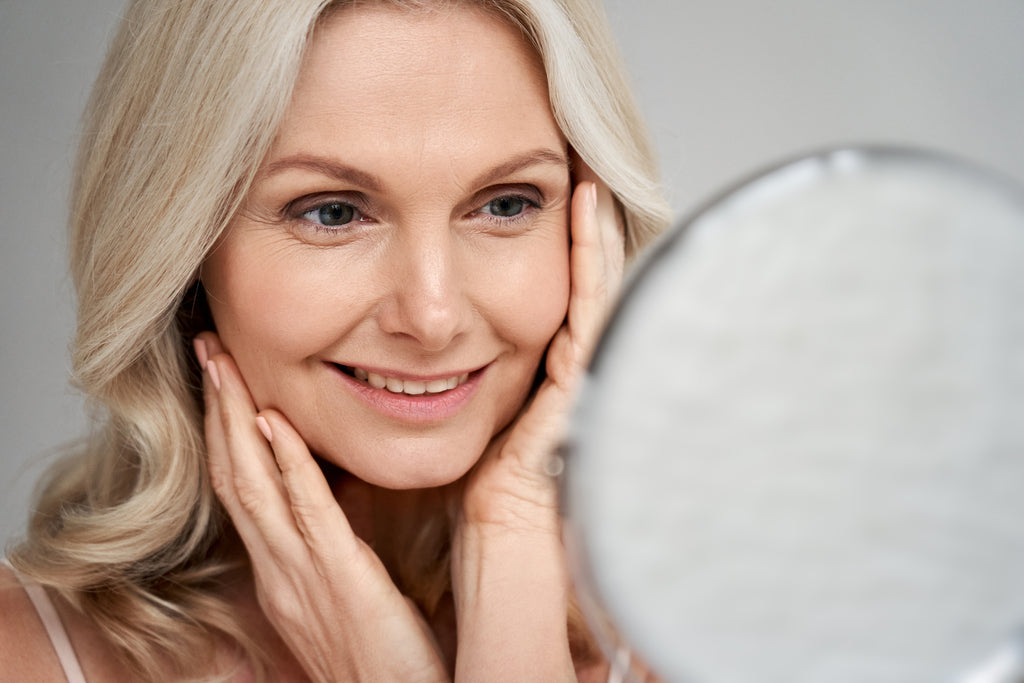
What are the top collagen drink benefits? RenewSkin Inc. explains.
2. Strengthen Hair & Nails
Because collagen is the main building block for the structure of your hair and nails, the loss of collagen that comes with age can result in weak, damaged hair, and brittle nails that are prone to splitting. Declining collagen levels can also slow down hair follicle regeneration, resulting in hair loss and thinning. 9
Collagen supplements that boost your body's 'wound repair' response can reinforce the strength of your hair and nails. They can also aid the production of keratin, another essential protein for your hair and nails.
Increasing peptides in your bloodstream can also help support healthy circulation, boosting blood flow to help your hair follicles and nail beds become stronger.
More helpful reading: Collagen for hair growth
3. Collagen Amino Acids Help Boost Muscles
It's not just the beauty industry that loves collagen, fitness experts are also keen on this wonder protein!
That's because up to 10% of our muscles are composed of collagen, which functions to keep them strong and healthy. Alongside regular strength training and exercise, studies have found collagen supplementation to be effective in increasing muscle mass. 10

More helpful reading from RenewSkin Inc.: Exercises to get rid of flabby arms
4. Relieve Pain & Stiffness in Joints
Collagen plays an essential role in joint health, making up a lot of the cartilage (rubber cushioning) that protects them from harm.
A 2008 study showed, over the course of 24 weeks, that collagen supplements can reduce joint pain and stiffness, with 73 athletes experiencing positive effects. 11
For older adults, osteoarthritis is a common degenerative joint disease associated with the breakdown of essential proteins in the body. Various studies have shown that taking gelatin and collagen supplements can help build up proteins in cartilage, improving your 'cushion' layers and reducing the impact on your joints, and giving them additional support. 12
More helpful reading from RenewSkin Inc.: Collagen for joints
5. Improve Heart Health
While you're probably wondering “is there anything collagen doesn't do?”, at this stage, we've got even more benefits and uses for this valuable protein! Collagen is also an essential element in the structure of your arteries and therefore plays an essential role in blood circulation throughout the body.
So by consuming collagen peptides and gelatin, you can help boost your circulation and strengthen arteries, which may help reduce the risk of heart attack and stroke.
6. Better Gut Health
Last but not least, recent advances in the use of collagen have shown to be helpful for the gut. The protein and peptides can help improve your gut health, thanks to their rich amino acid content. These amino acids help aid food digestion and can help repair the gut lining, making these supplements a great option for anyone with leaky gut syndrome or IBS. 13
One study even showed that gelatin could slow the growth of cancer cells from colon cancer and stomach cancer. 15

More helpful reading:
https://www.renewskinco.com/blogs/i/collagen-supplement-facts-and-myths
The Best Sources of Collagen
As we now know, gelatin is derived from collagen and it is a good source of this protein. However, it often comes as part of a food product that also contains sweeteners, colorings, and preservatives that might be detrimental to your health.
If you want to feel the best beauty benefits of this miracle protein, here is a rundown of the very best sources you can look to:
Food
It's not just gelatin-filled Jell-O and candy, there are plenty of foods out there that have many of the essential amino acids and vitamins your body needs to make more collagen.
To make collagen, your body needs two amino acids: glycine, proline, plus one antioxidant: vitamin C. These three nutrients combine together to form new collagen chains.
Food rich in these collagen-builders includes:
- White meat, especially chicken
- Fish and shellfish
- Tofu, soybeans
- Egg whites
- Dark leafy greens like spinach, kale, and Swiss chard
- Citrus fruits and berries
So as long as you keep filling up your plates with a balanced combination of the above foods (and more), you'll give your body's natural collagen synthesis processes a serious helping hand.
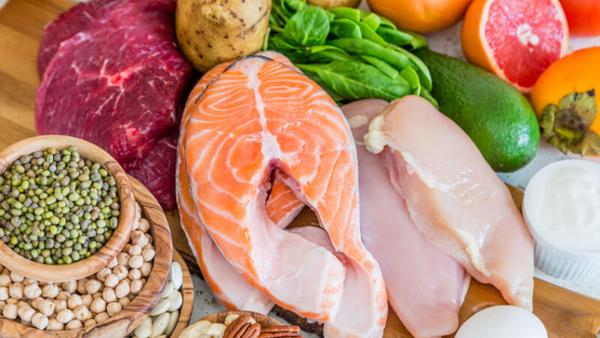
What are the best foods for healthy skin? RenewSkin Inc. explains.
Topical Skincare Products
When it comes to absorbing collagen from cosmetics, the skin barrier typically isn't up to the challenge. Collagen alone is too large to absorb effectively, and gelatin similarly isn't small enough. But when nano-sized hydrolyzed peptides come along, your skin is much more receptive to absorbing them and feeling the benefits!
Rich anti-aging formulas like a collagen face mask, serum, or night cream can be beneficial and effective at delivering collagen peptides directly to your dermis.
And when it comes to topical peptide products, there's nothing better than our super-plumping Taut Collagen Mask. This mask contains a winning combination of hydrolyzed collagen peptides, hyaluronic acid, vitamin C, and botanical squalene (from olives) to bring you brighter, firmer, smoother skin in just 15 minutes.
Our soothing formula works to tone, hydrate, and brighten skin, infusing your complexion with some seriously moisturizing and healing nutrients to give you an instant refresh. Just apply, put your feet up, and you'll be glowing in no time!
More helpful reading: Best skin care products
Collagen Supplements
Supplements are the best way to supercharge your body's collagen production processes from the inside out. Of course, as we know, not all supplements are created equal! To refresh, when choosing a collagen supplement, you should remember the following:
- Marine collagen, sustainably sourced is best. Look for supplements containing peptides from wild-caught snapper or cod.
- Hydrolyzed collagen peptides are essential. Without hydrolysis, collagen is not usable!
- Higher potency means maximum benefits.
Collagen supplements can come in powder, capsule, or liquid forms. Our high-potency liquid collagen drink is our best option for anyone looking for maximum beauty benefits, particularly for women over the age of 35.
Taut Premium Collagen Powder, on the other hand, is our super-portable and convenient option for maintaining your collagen intake, whenever and wherever you go!
These are our small sachets of collagen goodness that don't compromise on power or taste. Each sachet contains 1,500 mg of hydrolyzed marine collagen peptides, hyaluronic acid, and grape seed extract, offering your skin a triple-action boost of strength, hydration, and protection.
Simply open the sachet and pour it on your tongue, allowing the powder to dissolve in your mouth. Or, dissolve in a glass of water and enjoy its delicious fruity flavor alongside an extra hydration hit for your skin. Pack a couple in your purse, and you're ready to go and glow!
More helpful reading:
https://www.renewskinco.com/blogs/i/best-vitamins-for-skin
Discover the Power of Peptides with Our Intense Transformation Program
If you're looking for the best way to enhance your skin health from the inside out, a combination of collagen peptides, antioxidants, and hydrating nutrients is the way to go.
Taut Collagen Drink provides the perfect combination of these skin-loving ingredients, and it is best and most effective when taken daily for three weeks straight. That's why we've created our Intense Transformation Program, which combines three boxes of Taut Liquid Collagen in one skincare bundle, giving you the perfect amount of collagen to supercharge your skin in a short space of time.
Marine collagen peptides and elastin peptides work to improve your skin's strength and flexibility, with a serious impact on the texture and smoothness of your skin. Hyaluronic acid attracts and retains moisture in your dermis, for a more plump and youthful appearance, while ceramide works to keep your skin barrier healthy and strong. Vitamin C and grape seed extract offer antioxidant protection and a boost of radiance, while salmon DNA helps to rejuvenate skin and reduce wrinkles.
A daily dose for three weeks is the perfect amount to truly transform the quality and texture of your skin, and once you see the results you'll surely want to keep up the good work!
That's where our Taut Collagen Maintenance Kit comes in, which combines two boxes of our liquid collagen (16 bottles) and is available on a monthly subscription basis. This kit gives you the opportunity to have a constant supply of skin-loving nutrients at your disposal, with a dose every other day keeping your newly radiant skin looking youthful and fresh.
Are you ready to commit to your skin? Try it today and enjoy a stronger, smoother, brighter complexion!
Check out the full range of premium collagen products available on a monthly subscription basis:
References
- https://pubmed.ncbi.nlm.nih.gov/29893587/
- https://www.ncbi.nlm.nih.gov/pmc/articles/PMC3198517/
- https://pubmed.ncbi.nlm.nih.gov/25410396/
- https://www.ncbi.nlm.nih.gov/pmc/articles/PMC6891674/
- https://www.rejuvaustralia.com.au/blog/collagen-production-decrease/
- https://pubmed.ncbi.nlm.nih.gov/17076983/
- https://www.ncbi.nlm.nih.gov/pmc/articles/PMC6518108/
- https://www.ncbi.nlm.nih.gov/pmc/articles/PMC6835901/
- https://pubmed.ncbi.nlm.nih.gov/25989472/
- https://www.ncbi.nlm.nih.gov/pmc/articles/PMC4594048/
- https://pubmed.ncbi.nlm.nih.gov/18416885/
- https://pubmed.ncbi.nlm.nih.gov/17076983/
- https://www.sciencedirect.com/science/article/pii/S1756464620305028





